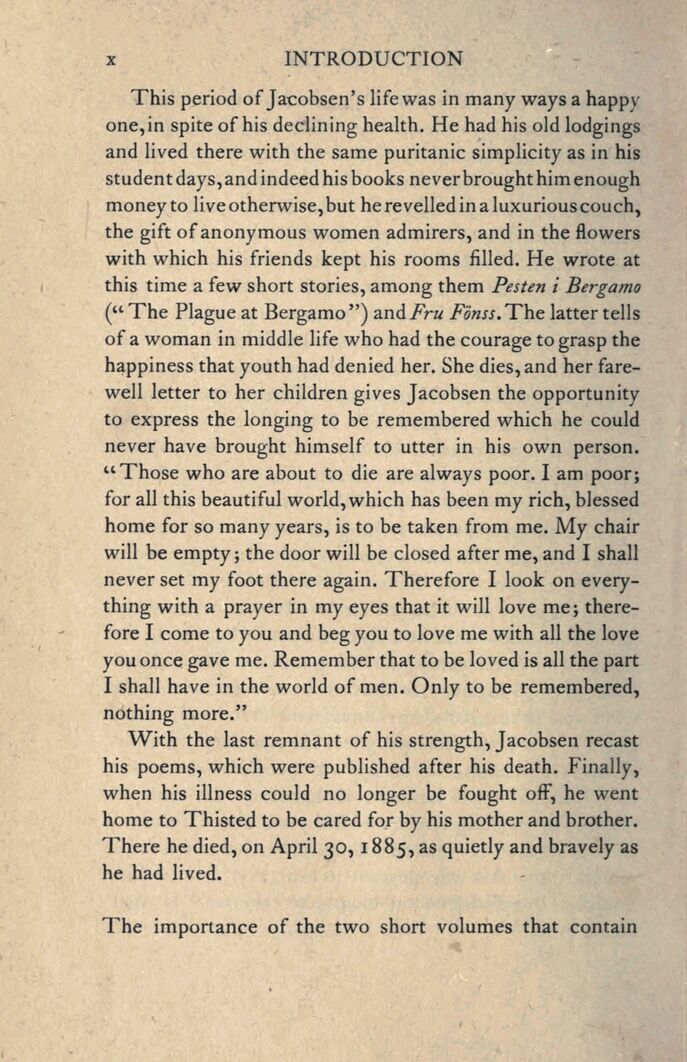
Full resolution (JPEG) - On this page / på denna sida - Introduction

<< prev. page << föreg. sida << >> nästa sida >> next page >>
Below is the raw OCR text
from the above scanned image.
Do you see an error? Proofread the page now!
Här nedan syns maskintolkade texten från faksimilbilden ovan.
Ser du något fel? Korrekturläs sidan nu!
This page has been proofread at least once.
(diff)
(history)
Denna sida har korrekturlästs minst en gång.
(skillnad)
(historik)
This period of Jacobsen’s life was in many ways a happy
one, in spite of his declining health. He had his old lodgings
and lived there with the same puritanic simplicity as in his
student days, and indeed his books never brought him enough
money to live otherwise, but he revelled in a luxurious couch,
the gift of anonymous women admirers, and in the flowers
with which his friends kept his rooms filled. He wrote at
this time a few short stories, among them Pesten i Bergamo
(“The Plague at Bergamo”) and Fru Fönss. The latter tells
of a woman in middle life who had the courage to grasp the
happiness that youth had denied her. She dies, and her
farewell letter to her children gives Jacobsen the opportunity
to express the longing to be remembered which he could
never have brought himself to utter in his own person.
“Those who are about to die are always poor. I am poor;
for all this beautiful world, which has been my rich, blessed
home for so many years, is to be taken from me. My chair
will be empty; the door will be closed after me, and I shall
never set my foot there again. Therefore I look on
everything with a prayer in my eyes that it will love me;
therefore I come to you and beg you to love me with all the love
you once gave me. Remember that to be loved is all the part
I shall have in the world of men. Only to be remembered,
nothing more.”
With the last remnant of his strength, Jacobsen recast
his poems, which were published after his death. Finally,
when his illness could no longer be fought off, he went
home to Thisted to be cared for by his mother and brother.
There he died, on April 30, 1885, as quietly and bravely as
he had lived.
The importance of the two short volumes that contain
<< prev. page << föreg. sida << >> nästa sida >> next page >>